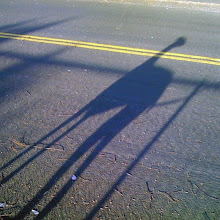Fe, Fi, Foetry
...purports to expose the corrupt world of poetry contests.
The number of annual contests in the United States has ballooned from five in 1980 to more than 100 today. Most charge "reading fees" of $20 to $30 an entry, with some contests drawing thousands of applicants.
In today's literary climate, winning a major contest is one of the only sure tickets to continuing life as a poet. Winners get book deals and professorships; losers look for another line of work.
In this world, Cordle says, judges — often "celebrity poets" who teach at prestigious schools — routinely award prizes to their students, friends and lovers. It is in his view a world of cozy cronyism that few outsiders know or care about, although poets have been whispering about it for decades.
The victims are the thousands of mostly young poets who pay to get a fair reading, and who are essentially "defrauded," Cordle says.
As a recovering poet myself, I want to assume he's right, since the idea that the fix is in is obviously preferable to thinking I wasn't a very good poet. But I did finally dump the reams of rejection letters I had collected over the years, or maybe they are getting eaten by the rats in our garage, which might be a good fate for them.
Then the story, however, gets to this:
Perhaps most damaged by those disclosures was Jorie Graham, who some say comes closest to being the superstar of American poetry.
At 54, Graham has accomplished what critic David Orr calls the trifecta of American verse: She won a major prize, a Pulitzer in 1996 for her book "The Dream of the Unified Field"; secured a faculty position at the Iowa Writers' Workshop; and was appointed to a distinguished chair at the most hallowed of Ivies, Harvard.
Last year, Foetry revealed the following:
In January 1999, with Graham as the judge for the Georgia contest, a manuscript by poet Peter Sacks was chosen for the prize. Sacks is Graham's colleague at Harvard, not to mention her husband.
Graham points out she didn't arrive at Harvard and marry Sacks until 2000, but she does not deny they knew each other at the time of the contest. In fact, Graham felt awkward enough about it to ask the series editor, Bin Ramke, to make the call. Ramke chose Sacks, and Graham concurred.
Foetry contends that Graham, as a judge at Georgia and other contests, has awarded prizes to five former students from the Iowa Writers' Workshop.
OK, so I do suck--Jorie was my teacher at Iowa, too, way back when we still chiselled our poems into stones as computers barely existed (poems on a mainframe is just too impersonal). Or Foetry has it all wrong.
But mostly it's a good thing for everyone I don't write poems anymore.


1 Comments:
As evidence that that even Jorie is not exempt from the corruption of the cereal-naming elite, her suggested name for Wheaties--
The cereal, bran that is no longer bran, no longer clarifies,
Illuminates, antique, freed from the body of
The air that carries it--
was not selected. In fact, despite the fact that her $20 "reading fee" check was cashed, there's no evidence that anyone even READ her submission. If they had, would they really have chosen "Wheaties"??? Really? Wheaties is sooooo Billy Collins.
Post a Comment
<< Home